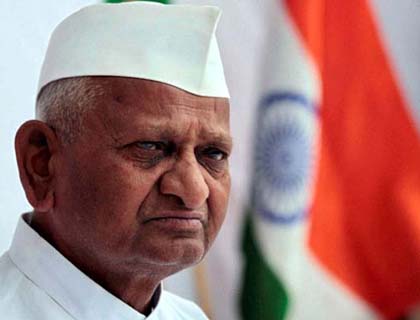Let me start this article with my personal experience in India. In 2008, when I got to the country and needed to register myself in a police commissioner office in Hyderabad, Andhra Paradesh, I faced some problem in the process, much due to unfamiliarity with the procedure. But there were number of foreign students complaining about facing unrelated problems. I heard a Somali student murmuring to a police officer about bringing him souvenir when he goes to his country and returns to India.
There were students complaining about police bribery, asking them money when they needed police officers to do something for them. Those students staying for education purpose for more than four years were telling about increasing bribery rate. "Previously, the problem would have been solved only for 50-100 rupees ($1-2) but they (policemen) now ask for more than 500 rupees."
Another thing which can shed light on the prevalence of bribery in the country is about subsequent incidents that followed the helicopter crush which led to death of Y.S. Rajasekhara Reddy, the chief minister of Andhra Paradesh at the end of 2009. He was the chief minister of the Andhra Paradesh State from 2004-2009, who had strong family political background which was a credit to Congress Party to win the election at the State level.
In an unfortunate crush, he lost life which encountered the federal government into confusion and bewilderment. State MPs were unable to agree to appoint a new Chief Minister. They were divided whether to appoint his son, MR. Y.S. Jaganmohan Reddy or another person. In this juncture, two of ministers strongly stood in the favor of his son. They were arguing to appoint his son, Y.S. Jaganmohan Reddy as new Chief Minister.
What amazed the people was not the severe arguments that broke out after his death. Instead it was the argument made by those two ministers——unfortunately; I forgot their names——saying in favor of Jaganmohan Reddy to occupy the seat.
One of them openly said that what they had was all due to benevolence of Y.S. Rajasekhara Reddy! Therefore, they supported his son in order to pay their dues.
It means that they were not qualified, and respected Rajasekhara Reddy appointed them on the basis of friendship, nepotism or anything else, except talent and qualification. Otherwise, how it was possible they own a lot of thing from public revenues due to another person?
Such stories are found around the country. Recently, Indians have increasingly getting disappointed by central and federal governments to fix problems. Administrations are completely dysfunctional. There are criminal cases that remain suspended for years; sometimes plaintiff or defendant dies in the process due to the length for which their case lasts. Therefore, people generally avoid taking the case into courts and try to solve them through bribing securities and other concerned civil servants to just get them out of the mess.
Many maintain that Indian government indeed collect astonishing amount of money from taxing people, but does least for civilians prosperity. There is functional system to make surveillance of where those giant amounts of revenues are drained.
The economic infrastructure has not followed the lead of Indian astonishing economic development. Public educational institutions, roads, public health centers and etc where government had to invest and improve the conditions remain poor.
There were various new emerging cities as the urbanization process has followed the lead of economic development. There is more skyrocketing buildings in the country. Existing cities are getting bigger and bigger.
But all these changes are not because of a functional government. All these promising changes are due to booming private sectors which have largely invested in the country on various spheres and created employment for people and increase their consuming power, which fuels appreciating circles of economic development.
There are various cities with poor sewerage systems, public transportations, dirty streets and highways, lack of water canal system and etc, but with dazzling towers, private educational systems, high employment rate, luxurious restaurants and vehicles, and etc. Even there are hard talks about having a functional private sector beside dysfunctional public sector. Many, giving the example of India, are emphasizing on functionality of market economy and privatization.
Anyhow, no matter how much Indians prospered due to privatization and booming economy, they are going to leave the government they elected with out punishment for huge corruption, which though is unable to retard the economic development, definitely creates problems ahead.
Recently, an activist Anna Hazare has become ombudsman tightening the ribbon around the neck of government to fight serious corruption. He, several times, has gone to hunger-strike and increasingly finds supporters across the country. Tens of thousands follow his lead and take fast along with him.
To relieve him, central government previously took steps which Anna Hazare and his supporters deemed too weak to bring any fundamental change.
So, on Tuesday, December 27, the government pushed a landmark anti-graft law through parliament, setting up a possible confrontation with supporters of a hunger-striking activist opposed to the bill.
"The law, creating a powerful ombudsman to probe corruption among senior politicians and civil servants, was passed by a voice vote after the government acceded to a number of amendments proposed by the main opposition party" Khaleejtimes.
There was no immediate reaction from veteran anti-corruption activist Anna Hazare who began a three-day public fast in Mumbai Tuesday morning to push his populist campaign's demands for the bill to be revised and strengthened. Reportedly, several thousand of Hazare supporters had pledged to take part in a campaign of civil disobedience if the legislation was passed in its draft form.
It is not clear what would be the next step of Anna Hazare for whose sake the bill approved. Would he continue his fast and press government of Manmohan Singh further or not?

